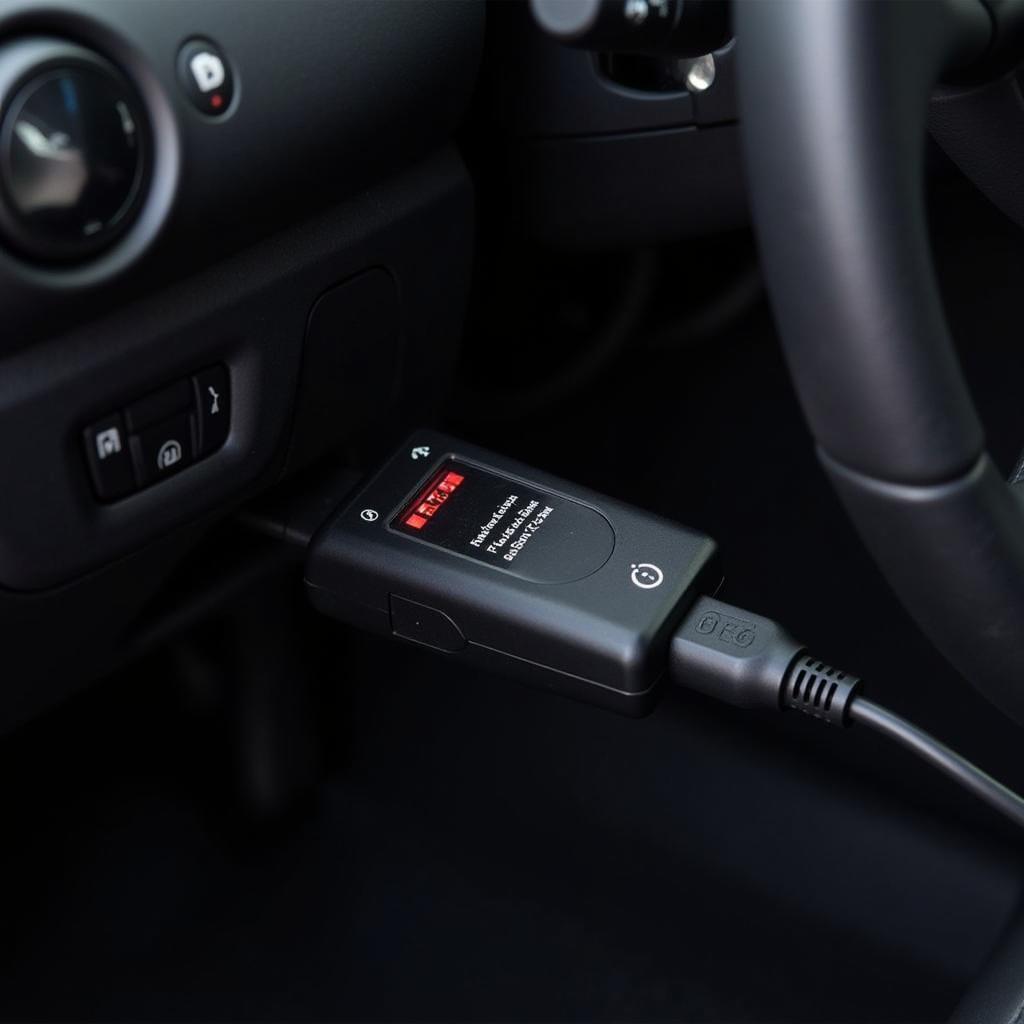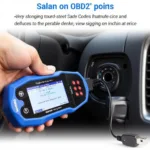The automotive market is flooded with devices promising increased fuel efficiency and reduced emissions. Among these, “eco OBD2 fuel optimization devices” have garnered significant attention. But do they live up to the hype? This comprehensive guide delves into the world of eco OBD2 fuel optimization devices, separating fact from fiction, and empowering you to make informed decisions about your vehicle’s performance and environmental impact.
Understanding OBD2 and Fuel Optimization
Before we dive into eco OBD2 devices, it’s crucial to understand the basics of OBD2 and fuel optimization.
OBD2 (On-Board Diagnostics 2) is a standardized system in modern vehicles (post-1996) that allows mechanics and car owners to access the vehicle’s engine data. By connecting an OBD2 scanner to the vehicle’s diagnostic port, you can retrieve information about engine performance, emissions, and potential issues.
Fuel optimization, on the other hand, refers to maximizing fuel economy by improving engine efficiency. This can be achieved through various methods, including:
- Mechanical adjustments: Regular maintenance, tire pressure checks, and ensuring proper engine tuning can significantly impact fuel efficiency.
- Driving habits: Aggressive driving, excessive idling, and unnecessary cargo weight can negatively impact fuel economy. Adopting fuel-efficient driving practices can lead to substantial savings.
- Aftermarket devices: This is where eco OBD2 fuel optimization devices come into play, claiming to improve fuel efficiency through software modifications.
The Claims and How Eco OBD2 Devices Supposedly Work
Eco OBD2 fuel optimization devices are often marketed as plug-and-play solutions that can dramatically improve your vehicle’s fuel efficiency by up to 15-25%. The claimed mechanism of action typically involves the device:
- Reading your vehicle’s ECU (Engine Control Unit) data: By accessing the OBD2 port, the device claims to analyze your engine’s performance in real-time.
- Adjusting fuel-to-air ratios: Based on the data collected, the device supposedly modifies the fuel-to-air mixture to optimize combustion and reduce fuel consumption.
- Modifying ignition timing: Some devices claim to adjust the ignition timing to enhance engine efficiency further.
While these claims might sound impressive, it’s crucial to approach them with a healthy dose of skepticism.
The Reality: Do Eco OBD2 Fuel Optimization Devices Really Work?
The effectiveness of eco OBD2 fuel optimization devices is a topic of much debate. While anecdotal evidence and manufacturer claims often paint a rosy picture, scientific studies and independent testing tell a different story. Here’s a balanced perspective:
Limited Scientific Evidence: There’s a lack of robust, peer-reviewed scientific research supporting the bold claims made by manufacturers of these devices. Most studies conducted have been small-scale and often funded by the manufacturers themselves, raising questions about their objectivity.
Vehicle ECU Adaptation: Modern vehicle ECUs are highly sophisticated and constantly adapt to driving conditions and fuel quality. They are designed to optimize fuel efficiency within the parameters set by the manufacturer. It’s highly unlikely that a simple plug-in device can outsmart the complex algorithms and years of engineering that go into developing these systems.
Potential Risks: While most eco OBD2 devices are unlikely to cause significant harm to your vehicle, there’s always a potential risk associated with tampering with the ECU. In some cases, using such devices might void your vehicle’s warranty.
When Eco OBD2 Devices Might Have a Minor Impact
While it’s important to be realistic about expectations, some users might experience slight improvements in fuel efficiency after installing an eco OBD2 device. This can be attributed to:
- Placebo Effect: Knowing that you’ve installed a device claiming to improve fuel efficiency might subconsciously lead to more fuel-efficient driving habits.
- Data Monitoring: Some devices provide real-time fuel consumption data, which can encourage drivers to adopt a more economical driving style.
Choosing the Right OBD2 Solution for Your Needs
If you’re looking to improve your vehicle’s performance and gain insights into its engine data, investing in a reputable OBD2 scanner is a much more reliable and informative approach. OBD2 scanners, unlike eco OBD2 fuel optimization devices, provide a wealth of valuable information about your vehicle’s health and performance.
Here are some key advantages of using an OBD2 scanner:
- Accurate Diagnostics: OBD2 scanners can accurately read and interpret your vehicle’s engine codes, helping you identify and address potential issues before they escalate.
- Performance Monitoring: Monitor vital engine parameters like RPM, coolant temperature, and oxygen sensor readings to gain insights into your vehicle’s performance.
- Emissions Testing Readiness: Check your vehicle’s emissions system status and ensure it’s ready for emissions testing.
For more information on different types of OBD2 scanners and their features, you can explore our detailed guides:
Conclusion
While the allure of a simple plug-in device drastically improving your vehicle’s fuel efficiency is tempting, it’s essential to approach such claims with caution. Eco OBD2 fuel optimization devices lack substantial scientific backing and are unlikely to deliver on their promises. Instead of seeking quick fixes, focus on proven methods for improving fuel economy, such as regular vehicle maintenance, adopting fuel-efficient driving habits, and investing in a reliable OBD2 scanner for accurate diagnostics and performance monitoring.
For specific information about the 2012 Dodge Charger and its OBD2 system, you can refer to our comprehensive guide on 2012 Dodge Charger OBD2-OBD11 PID C7-00.


